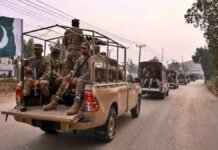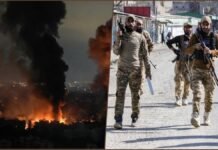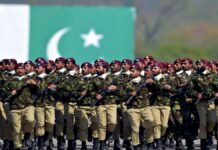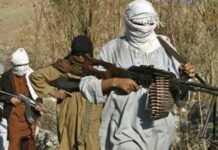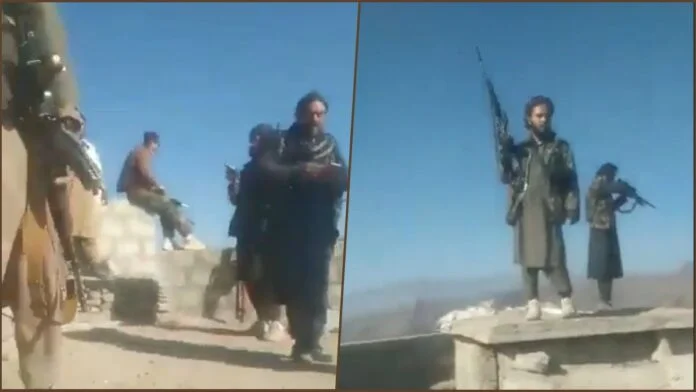
Key Points:
- TTP Video Shocks Pakistan: The Tehreek-e-Taliban Pakistan (TTP) released a video claiming they overran a Pakistani Army post in Salarzai tehsil, Bajaur district, hoisting their Islamic flag after the army fled.
- Pakistan Retaliates: Pakistani military confirmed a major attack by TTP, claiming they killed 15 terrorists while accusing the Afghan Taliban of supporting the assault.
- Revenge for Airstrikes: The Taliban cited Pakistan’s airstrike in Paktika province, which killed 50 civilians, including women and children, as the reason for the retaliatory attacks.
- Casualties Mount: Over the past year, TTP attacks have resulted in the deaths of approximately 400 Pakistani soldiers, deepening tensions along the Afghan-Pakistan border.
- Diplomatic Fallout: The worsening conflict threatens already strained relations between Pakistan and Afghanistan, with accusations of sovereignty violations adding fuel to the fire.
Islamabad: A dramatic escalation in the conflict between the Pakistani Army and Tehreek-e-Taliban Pakistan (TTP) unfolded as TTP terrorists released a video claiming they captured a key military post in Salarzai tehsil, Bajaur district. The video shows TTP fighters removing the Pakistani flag and replacing it with their Islamic banner, signaling a bold challenge to Islamabad’s authority.
TTP’s Bold Claim
The video, widely circulated on social media, portrays the Pakistani Army fleeing their post. This symbolic act has amplified tensions in the already volatile border region. TTP, emboldened by their actions, declared the attack as part of their ongoing campaign against the Pakistani military.
Pakistani Army’s Response
In an official statement, the Pakistani Army admitted that TTP launched a significant attack on their border posts using heavy weaponry. The military retaliated, claiming to have killed 15 TTP terrorists and inflicted substantial damage on their forces.
However, the army also alleged that the Taliban government in Afghanistan actively supports TTP operations, enabling infiltration and coordinated assaults.
Revenge for Airstrikes in Paktika
The Taliban responded, asserting that their actions were retaliation for a deadly Pakistani airstrike in Paktika province, Afghanistan. The strike reportedly killed 50 civilians, including women and children, in Barmal district.
A Taliban spokesperson described their cross-border actions as targeting “criminal elements” but refrained from directly addressing whether Pakistani military posts were the primary targets.
Rising Casualties and Strained Relations
The ongoing skirmishes between TTP and the Pakistani military have taken a heavy toll. Over the past year, approximately 400 Pakistani soldiers have lost their lives in TTP-led attacks.
This intensifying violence underscores the ideological and operational ties between the TTP and Afghan Taliban, complicating Pakistan’s efforts to stabilize its border regions.
Broader Implications
The Taliban government has condemned Pakistan’s airstrikes, labeling them a violation of Afghanistan’s sovereignty. They also claimed responsibility for killing 19 Pakistani soldiers in recent retaliatory attacks.
Analysts warn that the escalating violence could lead to a complete breakdown in Pakistan-Afghanistan relations. Afghan media reports that casualty figures from the recent clashes remain unverified, further adding to the uncertainty.

What Lies Ahead?
As both sides dig in, the conflict shows no signs of abating. Pakistan’s accusations of Afghan complicity in harboring TTP fighters and the Taliban’s defiance over sovereignty violations risk plunging the region into deeper chaos.
Observers note that without diplomatic engagement and mutual restraint, the situation could spiral further, threatening regional stability and exacerbating humanitarian crises.



































